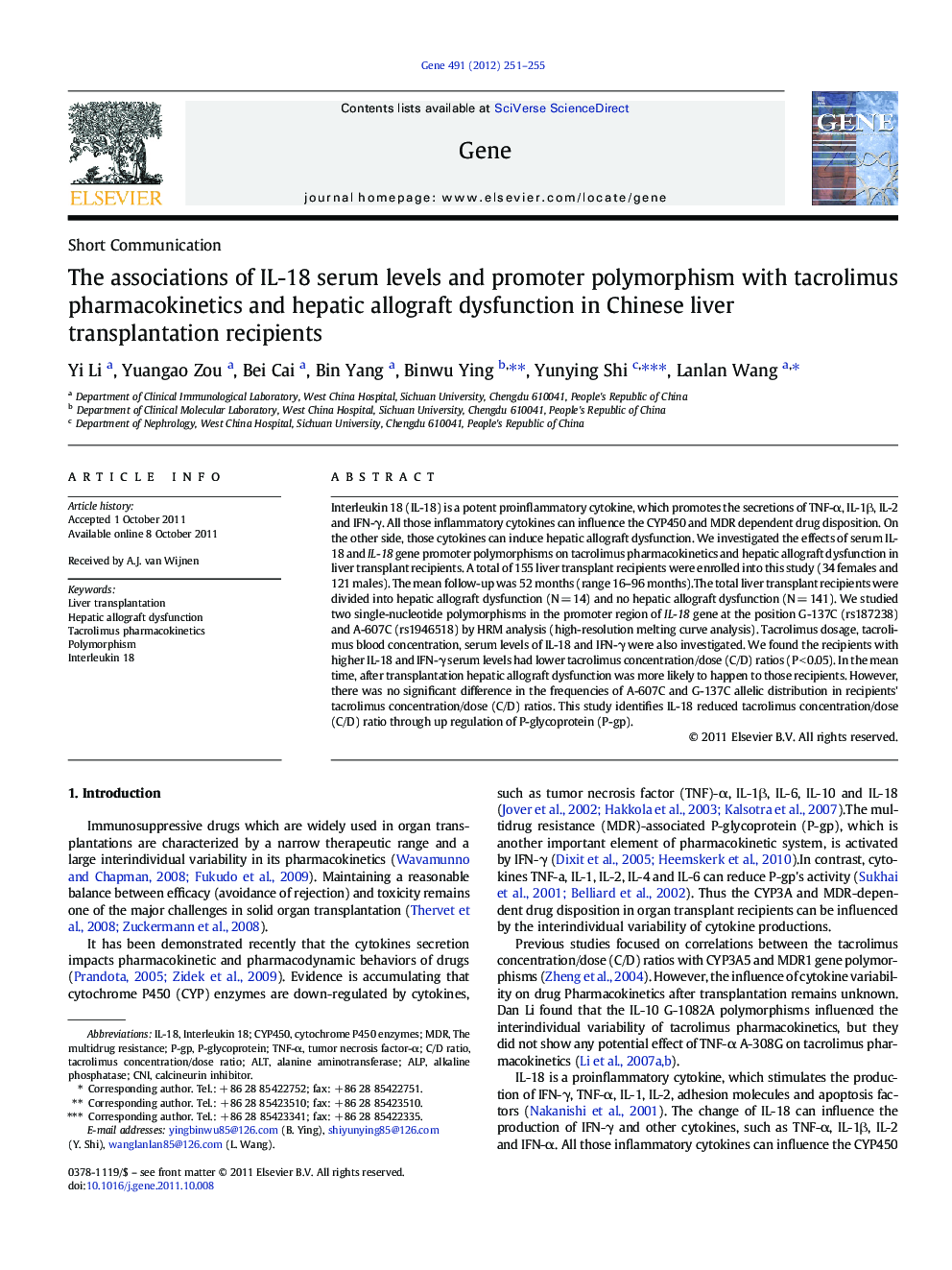| Article ID | Journal | Published Year | Pages | File Type |
|---|---|---|---|---|
| 2818205 | Gene | 2012 | 5 Pages |
Interleukin 18 (IL-18) is a potent proinflammatory cytokine, which promotes the secretions of TNF-α, IL-1β, IL-2 and IFN-γ. All those inflammatory cytokines can influence the CYP450 and MDR dependent drug disposition. On the other side, those cytokines can induce hepatic allograft dysfunction. We investigated the effects of serum IL-18 and IL-18 gene promoter polymorphisms on tacrolimus pharmacokinetics and hepatic allograft dysfunction in liver transplant recipients. A total of 155 liver transplant recipients were enrolled into this study (34 females and 121 males). The mean follow-up was 52 months (range 16–96 months).The total liver transplant recipients were divided into hepatic allograft dysfunction (N = 14) and no hepatic allograft dysfunction (N = 141). We studied two single-nucleotide polymorphisms in the promoter region of IL-18 gene at the position G-137C (rs187238) and A-607C (rs1946518) by HRM analysis (high-resolution melting curve analysis). Tacrolimus dosage, tacrolimus blood concentration, serum levels of IL-18 and IFN-γ were also investigated. We found the recipients with higher IL-18 and IFN-γ serum levels had lower tacrolimus concentration/dose (C/D) ratios (P < 0.05). In the mean time, after transplantation hepatic allograft dysfunction was more likely to happen to those recipients. However, there was no significant difference in the frequencies of A-607C and G-137C allelic distribution in recipients' tacrolimus concentration/dose (C/D) ratios. This study identifies IL-18 reduced tacrolimus concentration/dose (C/D) ratio through up regulation of P-glycoprotein (P-gp).
► IL-18 and IFN-γ can influence tacrolimus pharmacokinetics. ► Recipients with higher IL-18 or IFN-γ serum levels had lower tacrolimus C/D ratios.
